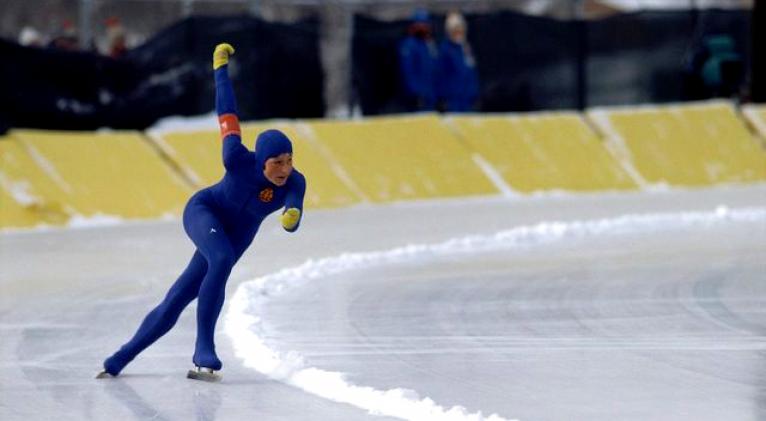In the Water, On the Ice, Even if the Sun Burns, Winners
especiales

Skeptics are a terrible gang. How they bother! And look how they get hit hard in the ring of life. They learn the hard way. Well, let's knock them out. In sport they are plenty. Olympism does not escape. I'll give you several examples.
Some did not look favorably on the possible achievements of the magnificent Dutch swimmer Inge de Brujin in Athens 2004. They considered her an old lady at 31 years old. With her work she put them out of combat. She repeated the gold medal achieved in the 50 meter freestyle four years ago in Sydney. She fought for more and achieved it: second title in the 100 also freestyle and a couple of third places: in the individual competition of 100 butterfly style and in the freestyle relay in the 400. For life she reached eight, half of them gold medals.
There were experts distrustful of the role played by the Soviet Irina Privalova in the great event in year 2000. If in Barcelona in 1992 she could not prevail in her youth... Time does not go by for the sake of it... Several comments did hurt. In the Spanish city she had to settle for bronze in the 100 (10.84), surpassed by the American Gail Devers and the Jamaican Juliet Cuthbert with 10.82 and 10.83, while in the relay she won silver. She thought differently, she found her specialty, she prepared better and won the 400 hurdle race, beating them in 53.02.
It’s time to talk about the first Russian Olympic champion who was an athlete and an artist; the ice skater Panin, Real name: Nikokai Kolonenkin. He won in the specialty of figures; his skating was artistic and impressed organizers, journalists, and fans in the IV London Games in 1908 with the beauty created by his movements. Sublimity! The Winter Olympics did not yet exist; their competitions were part of the summer competitions.
Panin, according to several historians, was a good footballer and also competed in tennis, sailing, and rowing. According to Cuban researcher Bermúdez Brito, at the age 56 he won the Spartakiada shooting of the Soviet Union. Hey, don't take off your coats: let's keep fighting on ice.
In winter as in summer. This girl, Cristha, has gone crazy. There were those who said, upon learning that the democratic German Cristha Luding Rothenburger, gold medalist in the thousand meters and silver in the 500 in Calgary 1988, would beat the cycling speed in Seoul after seven months. "She can get hurt, she already has enough glory. What if she makes a fool of herself?" Some continued commenting. Her coach thought differently. She trusted her power. She has trained properly. She mastered the technique...
On the track. The sprinters are tornadoes on two wheels. The Soviet Erika Salumae wins. The silver lady is Christa, who became the first winner in the great summer and winter events in the same year. KO for disbelievers.
On the ground or on the ice, under the sun or bit by the cold. Not everyone believed in skater Darek Parra, an American of Latin origin, regarding his role next to him Salt Lake City, Utah, 2002, host city for the XIX Winter Games.
In the 1995 Pan American Games in Mar del Plata he had won the marathon (42 kilometers), the 20,000 and the 1,500 meters on the road, the 300 meters on the track and was one of the golden contenders in the 10,000 relay along with Chad Hedrick, and Anthony Muse silver in the 500 track and 300 road and bronze in the 20,000 track. Overall: 5.2-1.
Ice skating is not the same, and indeed, they told him. He answered: "Nothing bad is going to happen to me. You'll see how I come back with medals." He was right: he returned with the gold medal in the 500 meters, a distance where he said farewell to the world record, and the subtitle in the 5,000.
Translated by Amilkal Labañino / CubaSí Translation Staff














Add new comment